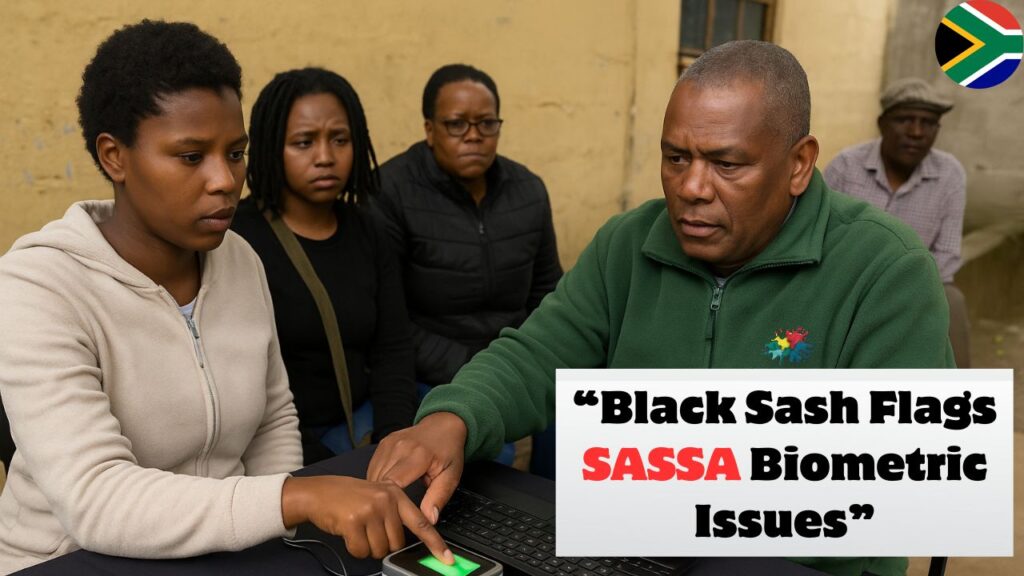The South African Social Security Agency (SASSA) has announced the implementation of biometric enrolment for social grant beneficiaries starting in 2025. This move aims to enhance security, reduce fraud, and ensure that grants reach the rightful recipients. However, the human rights organization Black Sash has raised concerns about SASSA’s readiness for this transition, pointing out potential risks for vulnerable groups who might face challenges in accessing biometric facilities or providing their data. The debate highlights the balance between security innovation and protecting citizens’ rights across South Africa.

Understanding SASSA’s Biometric Enrolment Initiative in South Africa
SASSA’s biometric enrolment system is designed to verify the identity of grant beneficiaries using fingerprints, facial recognition, or iris scans. The goal is to minimize fraudulent activities and duplicate registrations within the social grant system. However, questions remain about infrastructure readiness, particularly in rural and remote areas where access to digital systems is limited. The success of this initiative will depend on how effectively SASSA integrates technology with user-friendly processes and whether the government provides adequate outreach to ensure smooth registration for millions of beneficiaries.
Black Sash Raises Concerns Over Readiness and Accessibility
The Black Sash organization has publicly voiced its worries regarding SASSA’s preparedness to roll out the biometric enrolment nationwide. Their main concern revolves around potential exclusion of elderly or disabled beneficiaries who might find it difficult to travel to enrolment centers or provide biometric data due to physical limitations. The organization has urged SASSA to ensure accessibility, data privacy, and a comprehensive communication plan to prevent confusion or exclusion. Black Sash also emphasized the importance of maintaining alternative verification methods during the transition phase to avoid disruptions in payments.
Impact on South African Social Grant Beneficiaries
While the biometric system promises greater security, it could initially lead to challenges for beneficiaries unfamiliar with technology. SASSA will need to conduct extensive public education campaigns to help citizens understand the new system. Furthermore, community outreach programs and mobile biometric units could be essential to reach people in remote villages. For many South Africans who depend on grants for daily survival, any delay or disruption caused by enrolment issues could have serious consequences, making readiness and transparency key priorities for the agency.
Ensuring Transparency and Public Trust in SASSA’s New System
Transparency and trust will be the cornerstone of SASSA’s biometric rollout. The agency must ensure that data protection laws are strictly followed and that beneficiary information remains confidential. Regular updates through local media, SMS alerts, and community networks will help reduce confusion. Collaboration with civil society organizations like Black Sash could also improve monitoring and feedback mechanisms. A clear implementation timeline, along with visible accountability, will determine whether the biometric system truly strengthens South Africa’s social protection framework.
| Aspect | Details |
|---|---|
| Program Name | SASSA Biometric Enrolment 2025 |
| Purpose | To verify beneficiary identity and reduce social grant fraud |
| Key Features | Fingerprint, facial recognition, and iris scan integration |
| Concern Raised By | Black Sash Human Rights Organization |
| Main Concerns | Readiness, accessibility, and data privacy risks |
| Beneficiary Impact | Potential challenges for elderly, disabled, and rural citizens |
| Government Role | Ensure infrastructure, training, and clear communication channels |
FAQs
Q1: What is SASSA’s biometric enrolment?
A: It’s a new system to verify beneficiaries using fingerprints and facial recognition.
Q2: Why is Black Sash concerned about the rollout?
A: They fear the system might exclude vulnerable people due to access and readiness issues.
Q3: When will SASSA start biometric registration?
A: The enrolment is expected to begin in phases during 2025 across South Africa.
Q4: How will SASSA protect personal data?
A: SASSA has committed to following South Africa’s data protection and privacy laws.





